Discovering the Best Herbs for Beginner Herbalists
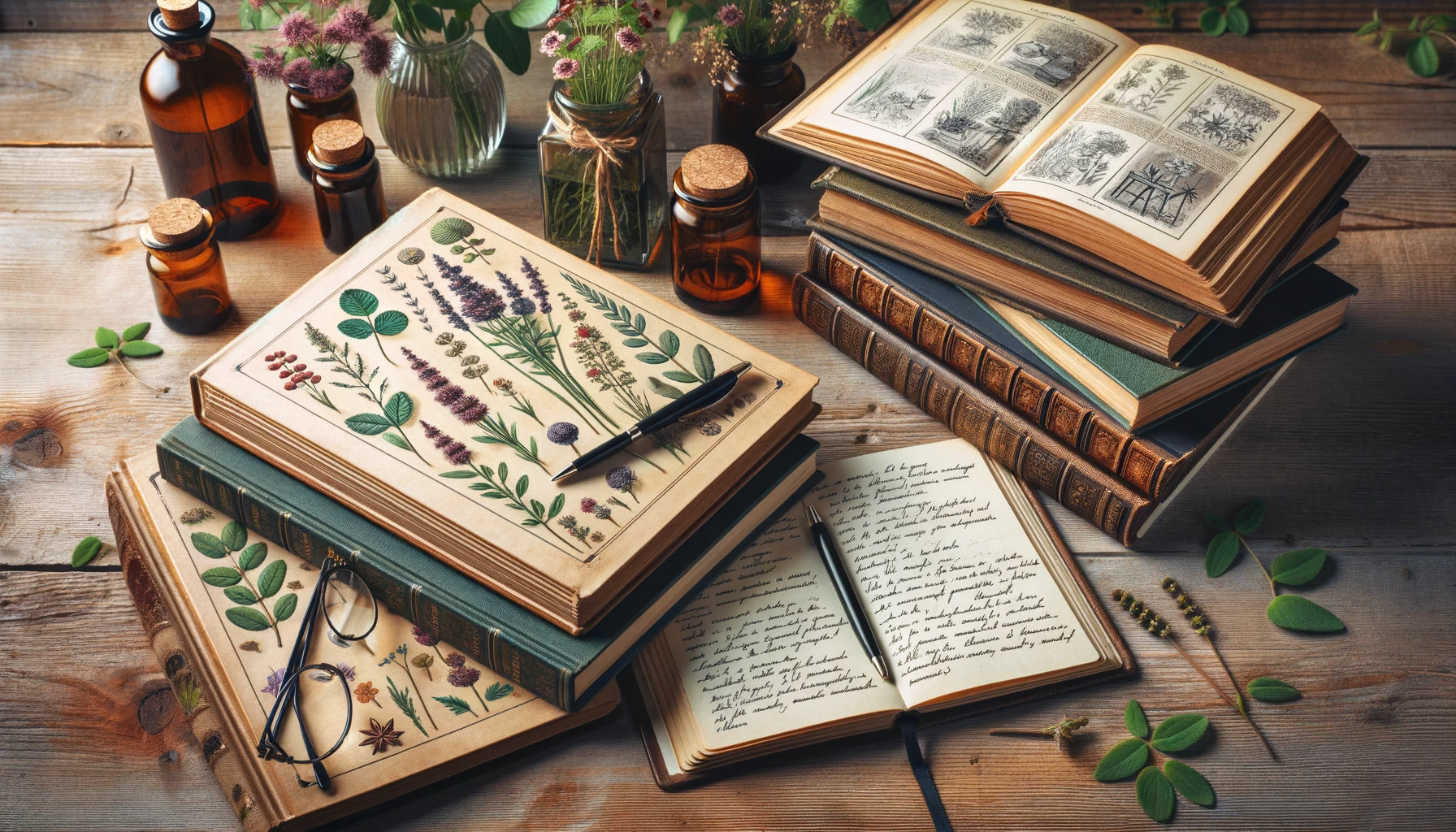
Key Takeaways Table
| Key Point | Details |
|---|---|
| Easy-to-Grow Herbs | Highlighting herbs that are simple to cultivate for beginners. |
| Medicinal Properties | Exploring the health benefits of each recommended herb. |
| Culinary Uses | Discussing how these herbs can enhance everyday cooking. |
| Maintenance Tips | Providing guidance on caring for and harvesting these herbs. |
| Integrating into Lifestyle | Ideas for incorporating these herbs into daily wellness routines. |
Herbalism, an ancient practice rooted in understanding the healing properties of plants, offers a unique path to wellness. For those just starting their journey in herbalism, selecting the right herbs is crucial. This article delves into the best herbs for beginners, exploring their medicinal, culinary, and easy-to-grow nature.
The Starter Herbalist’s Garden: Easy-to-Grow Herbs
Starting an herbal garden can be both rewarding and therapeutic. For beginners, it’s essential to choose herbs that are not only beneficial but also easy to grow and maintain. Here are some top picks:
- Basil: A culinary favorite, basil is not just for pesto. It has properties that aid digestion and can relieve stress. Learn more about its benefits in our holistic nutrition health guide.
- Mint: Known for its refreshing aroma, mint is excellent for aiding digestion and can be used in teas, salads, or as a garnish. Discover more in our tea leaf insights.
- Lavender: Famous for its calming scent, lavender is a must-have for any beginner’s garden. It can be used in aromatherapy and has sleep-inducing properties. Explore its uses in our crystal energy inner harmony guide.
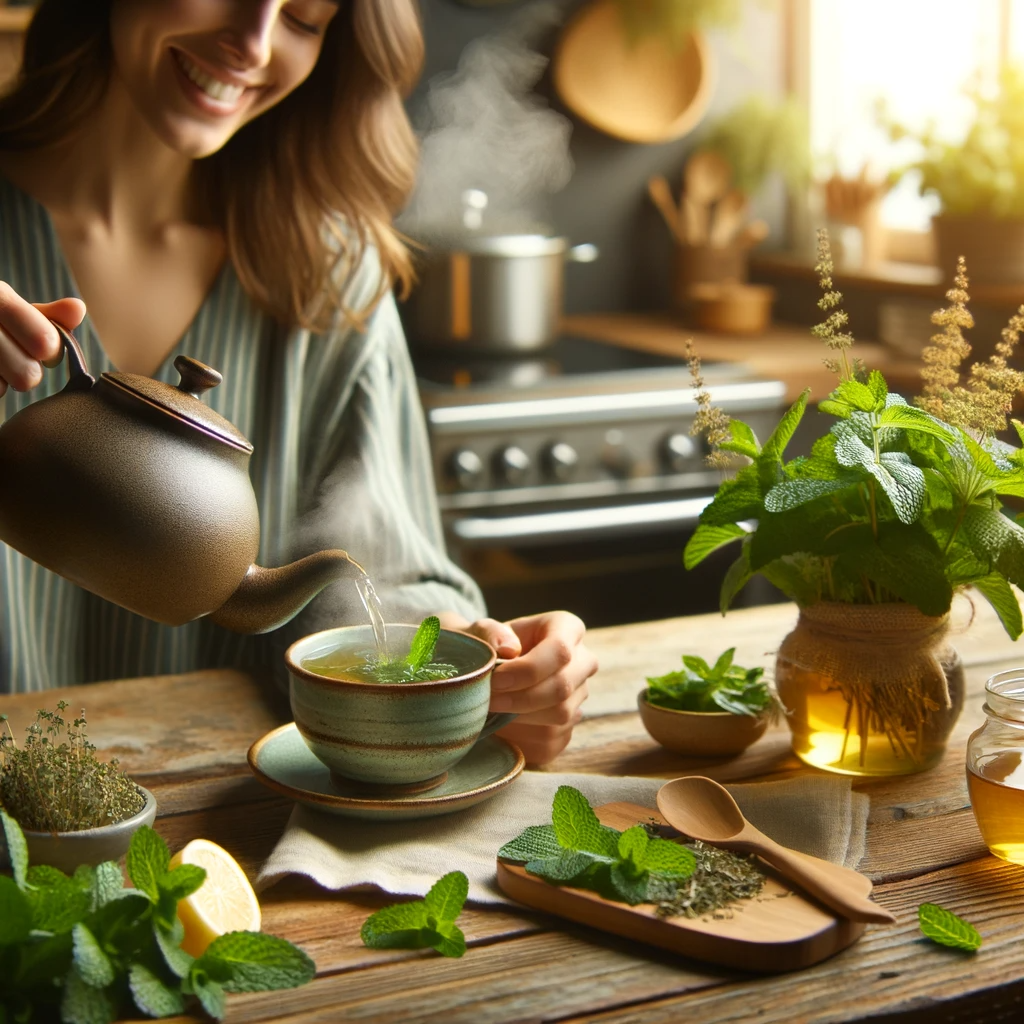
Health at Your Fingertips: Medicinal Properties of Beginner Herbs
Understanding the health benefits of each herb is crucial in herbalism. Here’s how these beginner-friendly herbs stand out:
- Chamomile: Known for its calming effects, chamomile is ideal for reducing anxiety and aiding sleep. Our spiritual yoga mat comparison offers complementary relaxation techniques.
- Parsley: Rich in vitamins and minerals, parsley is more than a garnish; it supports kidney health and digestion. Delve deeper into its benefits in our holistic health overview.
- Lemon Balm: With its mood-enhancing properties, lemon balm is excellent for easing stress and improving cognitive function. Explore more in our exploring the gut-brain connection for improved wellness article.
Culinary Exploration: Cooking with Herbs
Integrating herbs into cooking not only enhances flavor but also boosts nutritional intake. Here’s how you can use the beginner herbs in your kitchen:
- Thyme: Perfect for adding depth to soups and stews, thyme is also known for its antibacterial properties. Find culinary inspiration in our holistic therapy wellness guide.
- Rosemary: With its distinctive flavor, rosemary can transform simple dishes. It also aids memory and concentration.
- Oregano: A staple in Italian cuisine, oregano’s antibacterial properties make it a powerful herb in your kitchen. Learn more in our natural remedies guide.
Growing and Caring for Your Herbs
To ensure your herbs thrive, consider these tips:
- Sunlight: Most herbs require at least six hours of sunlight daily. Our sacred grid power article discusses the importance of natural elements in growth.
- Watering: Over-watering is a common mistake. Herbs prefer well-drained soil.
- Harvesting: Regular harvesting encourages growth.
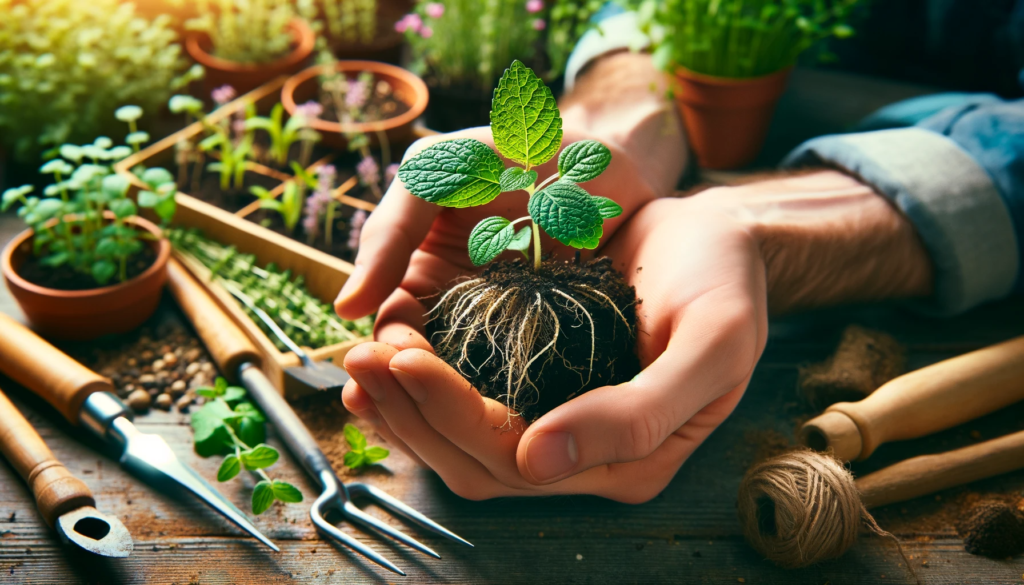
Integrating Herbs into Your Wellness Routine
Herbs can be more than just ingredients; they can be a part of your daily wellness practice:
- Herbal Teas: Sipping on herbal teas can be a relaxing and healthful habit.
- Aromatherapy: Using herbs like lavender for aromatherapy can enhance your mood and environment.
- Topical Applications: Some herbs can be used in salves and oils for skin benefits.
By starting with these beginner-friendly herbs, you can embark on an enriching journey into the world of herbalism. Remember, the key to successful herbalism lies in understanding each plant’s unique properties and integrating them into your daily life.
Stay tuned for the next part of this article, where we will explore more about these beneficial herbs and how to make the most out of your herbal garden.
Advanced Tips for Beginner Herbalists
After establishing a basic herbal garden and integrating these herbs into your daily routine, it’s time to explore more advanced aspects of herbalism. This section will provide additional tips for cultivating, utilizing, and understanding the deeper aspects of your beginner herbs.
Beyond Basics: Advanced Cultivation Techniques
Enhancing your herbal garden requires more than just basic care. Here’s how you can take your cultivation to the next level:
- Companion Planting: Some herbs thrive when planted together. For example, basil and parsley can benefit each other.
- Natural Pest Control: Use natural methods like companion planting or homemade sprays to keep pests at bay. Learn more in our holistic therapy wellness article.
- Seasonal Adjustments: Understanding the seasonal needs of each herb can significantly improve their growth.
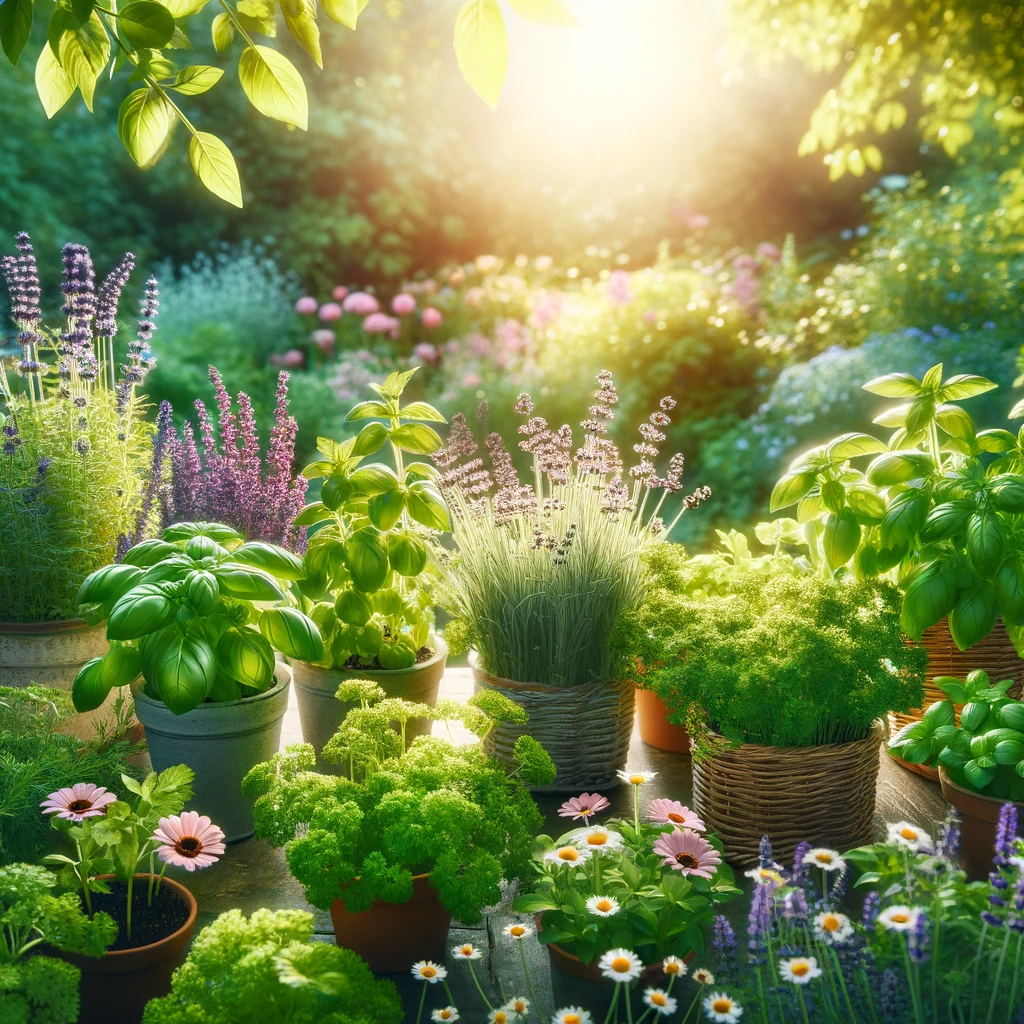
Herbal Preparations: Crafting Your Own Remedies
Creating your own herbal remedies is a fulfilling aspect of herbalism. Here are some ways to start:
- Infusions and Decoctions: Learn to make herbal teas and decoctions for health benefits.
- Tinctures and Salves: These concentrated herbal extracts can be used for various health issues.
- Herbal Oils: Infusing oils with herbs like rosemary can create powerful topical treatments.
Understanding the Energetics of Herbs
Herbs carry unique energies that can affect the body and mind in different ways. To deepen your herbal practice:
- Hot vs Cold Herbs: Some herbs are considered ‘hot’ (like basil) and some ‘cold’ (like mint). Balancing these energies is crucial. Our astrological guide health article offers insights into this balance.
- Herbs and Chakras: Certain herbs resonate with specific chakras. Lavender, for instance, is connected to the Third Eye Chakra.
- Herbs and Astrology: Just like crystals, herbs have astrological associations. Discover these connections in our soulmate astrology guide.
Incorporating Herbs into Spiritual Practices
Herbs have been used in spiritual practices for centuries. Here’s how you can incorporate them:
- Smudging and Cleansing: Sage and other herbs can be used for smudging to cleanse spaces energetically. Our smudging kits comparison offers a deeper look.
- Rituals and Ceremonies: Herbs like rosemary can be used in rituals for protection and purification. Explore more in our rune sets review.
- Herbal Amulets: Creating amulets with herbs can offer protection and bring positive energies. See our sacred pendant review for ideas.
By exploring these advanced aspects of herbalism, you can deepen your connection with nature and harness the full potential of your herb garden. Remember, the journey into herbalism is one of continuous learning and discovery.
Stay tuned for the final part of this article, where we will wrap up with some concluding thoughts and insights into the world of beginner herbalism.
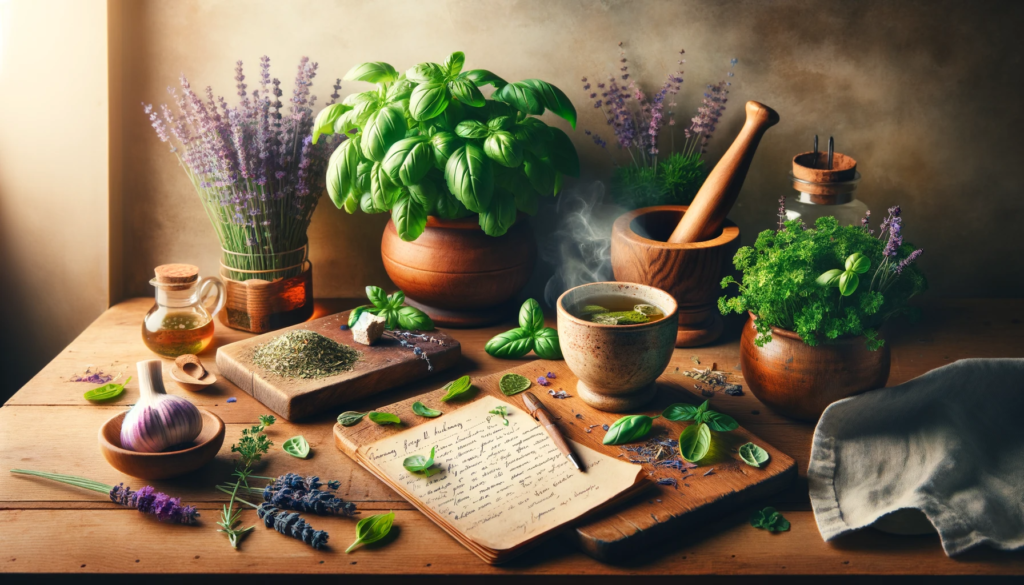
Embracing the Herbal Journey: Concluding Insights for Beginners
As we conclude our exploration into the world of beginner herbalism, it’s essential to reflect on the journey and envision how these foundational practices can evolve into a lifelong pursuit of wellness and connection with nature.
Embracing Herbalism as a Lifestyle
- Continuous Learning: The world of herbalism is vast and ever-evolving. Engage in continuous learning through resources like our ancient illuminati review and mystery school code review.
- Community Involvement: Joining herbalist communities or forums can provide support and deepen your understanding.
- Sustainable Practices: As you grow in your herbal journey, consider sustainable harvesting and ethical sourcing of herbs.
The Impact of Herbalism on Overall Wellness
Herbalism is not just about herbs; it’s a holistic approach to wellness that encompasses physical, mental, and spiritual health:
- Physical Health: Regular use of herbs can contribute to improved physical health. Our holistic health overview provides more insights into this aspect.
- Mental and Emotional Well-being: Many herbs have stress-relieving and mood-enhancing properties. Explore this further in our energy healing basics article.
- Spiritual Growth: Herbs have been used in spiritual practices for centuries. Their use can deepen your spiritual connection, as discussed in our astral projection beginners guide.
Final Thoughts for the Aspiring Herbalist
Embarking on the journey of herbalism opens up a world of discovery, healing, and connection with nature. As you grow in your practice, remember to:
- Stay curious and open-minded.
- Respect the traditions and knowledge that have been passed down through generations.
- Integrate your learning into daily life for a holistic approach to wellness.
Herbalism is a beautiful and rewarding path that offers endless opportunities for growth and learning. By starting with the basics and gradually exploring more advanced aspects, you can build a strong foundation in this ancient practice and enjoy its many benefits.
We hope this guide has inspired you to start or deepen your journey into the world of herbalism. Remember, the path is as unique as the individual walking it, and the rewards are plentiful.
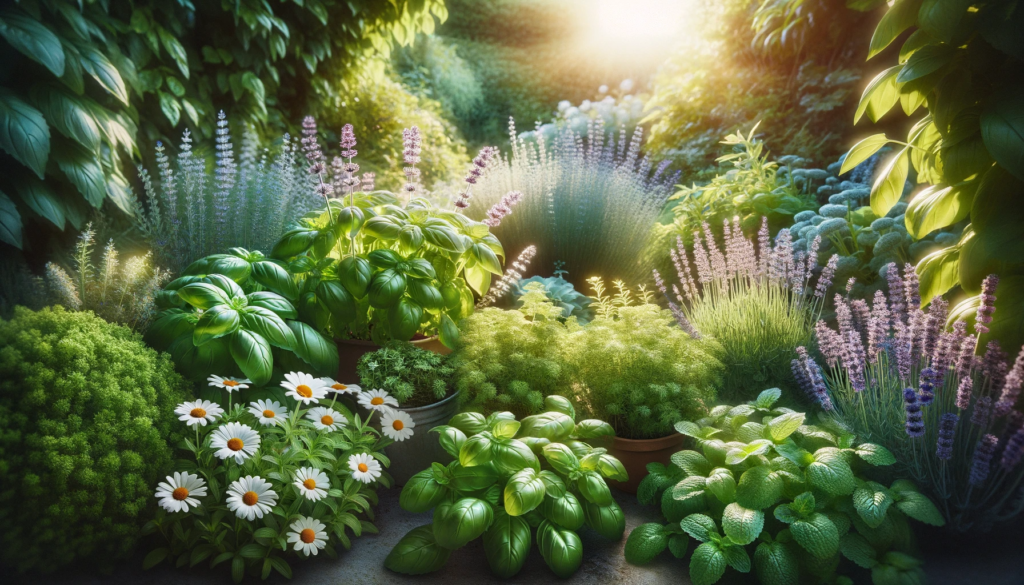
FAQ: Beginner’s Guide to Herbalism
1. What are the easiest herbs for a beginner to start with in herbalism?
- Answer: Basil, mint, lavender, chamomile, parsley, and lemon balm are great starting points for beginners. They are easy to grow and have a variety of uses both in cooking and for medicinal purposes.
2. How do I use herbs in my daily cooking?
- Answer: Herbs like basil, thyme, and oregano can be used to enhance the flavor of soups, stews, and sauces. Fresh herbs are best added towards the end of the cooking process to preserve their flavor.
3. Can I grow these herbs indoors?
- Answer: Yes, most of these beginner herbs can be grown indoors on a sunny windowsill. They need adequate sunlight and well-drained soil to thrive.
4. What are some medicinal benefits of these beginner herbs?
- Answer: Chamomile is great for relaxation and sleep, basil aids in digestion and stress relief, while lavender is known for its calming effects and can help with sleep disorders.
5. How often should I water my herb garden?
- Answer: Herbs generally prefer well-drained soil and should not be overwatered. It’s best to water them when the soil feels dry to the touch.
6. Are there any spiritual uses for these herbs?
- Answer: Yes, herbs like sage and lavender are often used in smudging and cleansing rituals. They are believed to help clear negative energy and promote a sense of calm.
7. What is companion planting and how can it benefit my herb garden?
- Answer: Companion planting involves growing certain plants together for mutual benefit. For example, basil and parsley can help each other thrive when planted together.
8. Can I make my own herbal remedies at home?
- Answer: Absolutely. You can create simple infusions, tinctures, or salves using these herbs. It’s important to research and follow safe practices when making herbal remedies.
9. How do I harvest and store these herbs?
- Answer: Herbs should be harvested when they are dry and before they flower for the best flavor. They can be stored dried or frozen for later use.
10. Where can I learn more about herbalism?
- Answer: There are many resources available including books, online courses, and workshops. Our website offers a variety of articles and reviews that can further your knowledge in herbalism.
These FAQs provide a quick reference for beginners in herbalism, covering the basics of starting an herb garden, using herbs in cooking and healing, and integrating them into daily life. For more detailed information, explore our comprehensive guide and other related articles.
